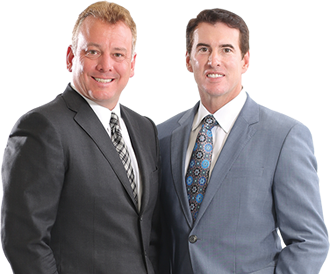Medicaid Planning
By the time you think about applying for Medicaid for you or a loved one, it may be too late to take advantage of some substantial opportunities to protect your assets. Through careful planning ahead of time, you can help ensure that quality care is available, and that your estate is protected as much as is allowable by law for a spouse or children.
BCN Attorneys are experienced in many facets of elder law including Medicaid Planning. We look at options such as long-term care insurance, pursuing benefit is owed to you under Medicare, Medicaid and the Veterans Administration, looking at the use of trusts, transferring assets in accordance with Medicaid strictures, purchasing of annuities, or increasing the income and allowances of family members.
Whether your need is immediate, or down the road, we can help you navigate Florida eligibility requirements and restrictions to get the care you need. Our lawyers work closely with you to understand your needs, your hopes for you or your loved one and your long-term goals. We will explain Medicaid’s legal process and discuss possible solutions.
Florida looks back five years (60 months) to see if there have been any distributions of assets to friends or family members for any reason. If so, then the State of Florida can assess a penalty. The state looks at the amount of money given away over the past five years and divides it by $3300. The resulting number is the number of months you or a loved one are disqualified from receiving Medicaid benefit is from the time you apply for Medicaid.
There are differing levels of Medicaid care. The Medicaid Wiaver Program provides benefit is for in-home and assisted living care. The patient must be Medicaid-eligible and need a nursing home level of care. Currently, the program is underfunded and there is a long wait list.
Medicaid’s institutional care program basic eligibility requirements include:
- S. Citizenship
- 65 years of age or older, blind, or disabled
- Florida residence
- Medical Need
- Meet income test
- Meet asset test
The patient must assign all rights to collect private health insurance benefit is and long-term care benefit is to the State
Medical need requirements include:
- Need for intermediate or skilled services
- Unable to perform at least three (3) Activities of Daily Living (ADLs):
- Walking / Standing / Mobilization
- Transferring from bed to chair or wheelchair
- Bathing
- Dressing
- Feeding
- Toileting
Income eligibility:
- Single Person Income Limit= $2,199
- Couple (Both in Nursing Home)
Income Limit = $4,398 - Income in excess of these amounts does not necessarily
disqualify someone from receiving Medicaid benefit is - Qualified Income Trust can be used
- Community Spouse may be entitled to a portion of the Medicaid applicant’s income
- Minimum monthly needs allowance = $1,991.25
- Excess shelter allowance
- Maximum total allowance = $2,980.50
Asset limit is:
- $2,000 for Medicaid Applicant
- $119,220 for Community Spouse
- $3,000 if both spouses applying for Medicaid
Exempt Assets
- Homestead Property (equity up to $552,000)
- No equity cap if community spouse or child who is under age 21, is blind, or disabled lives in the home
- Personal Property
- Vehicle
- One vehicle of any value and additional vehicles if more than 7 years old and not antiques
- Income Producing Properties
Life Estates
- Must be primary residence; resided in at least one year
- Life Insurance
- If combined face value or cash value is less than $2,500
- Burial Funds
- Irrevocable Prepaid Funeral Plans
- Designated Burial Account with $2,500 or less
- IRAs (if RMD taken)
- Unmarketable real estate
Personal needs allowance
- If qualified, Medicaid Applicant may keep $105per month to pay for personal needs.
Medicaid planning tools & strategies
- Spend down
- Buy a new car
- Prepaid burial.
- Home improvements or repairs
- Debt payoff (valid and documented).
- Attorney’s fees
To learn more about your Medicaid options and protecting your family’s future, talk to a BCN Attorney today. The consultation is free.








